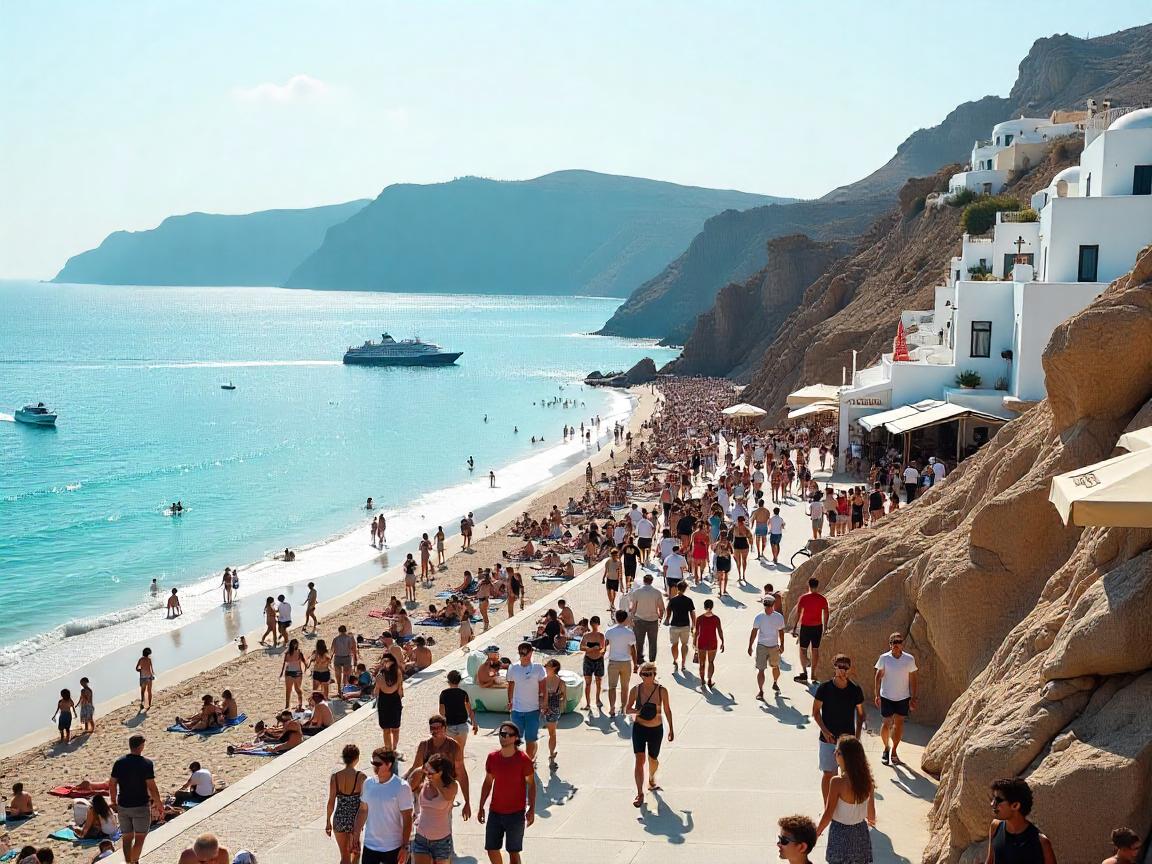UK Travel Chaos: The Operators Urged to Cancel their Holidays to Spain, Majorca, and Tenerife-What Travellers Need to Know Now! - Travel And Tour World
Sunday, June 15, 2025

British travel firms have issued emergency warnings to travelers to postpone their gateways to Spain, including destinations like Tenerife and Majorca, amid ongoing anti-tourist demonstrations. Increasing unrest and anti-tourism activists have raised grave worries, seriously impacting travel arrangements and spreading uncertainty for British tourists.
Protests have swept across several popular European Union holiday destinations, particularly in the Balearic Islands and mainland Spain. Activists are voicing their frustrations over excessive tourism, which they claim is responsible for inflating housing costs, causing severe environmental damage, and straining local infrastructure.
Majorca, Ibiza, Menorca, San Sebastián, Granada, Tenerife, and Málaga have emerged as epicenters for these demonstrations. These protests, organized by the Southern Europe Network Against Touristification (SET), highlight the increasingly strained relationships between locals and tourists in regions heavily reliant on tourism income.
This rapidly escalating anti-tourism sentiment has triggered strong reactions from UK tourists. Social media channels have seen British holidaymakers express their frustrations, many advocating for UK travel companies to halt holiday packages to these contentious areas.
UK tourists have also raised concerns over their safety and comfort amidst this escalating backlash, citing “non-friendly actions” and potential legal complications during visits. These concerns have led some tourists to openly threaten to boycott popular Spanish destinations entirely, seeking alternative destinations that offer friendlier environments and better value.
Central to the anti-tourism protests are the economic implications that excessive tourism has brought to local communities. A recent report by Fotocasa, a housing platform, revealed an alarming surge in monthly rent prices across the Balearic Islands—from €562 to €1,451 over the past decade. This sharp increase has made housing unaffordable for many locals, driving widespread dissatisfaction and fueling protests.
Activists in Majorca explicitly addressed tourists in an open letter published in March, stating bluntly: “Do not come.” The letter articulated profound discontent, accusing tourists of being “the source of our problem” and detailing how tourism-driven cost inflation and overcrowding have degraded quality of life and the local environment.
In response to these grievances, the Balearic Islands government has implemented aggressive tourism containment measures. These include a significant hike in visitor taxes and the introduction of new levies on hire cars, intended to mitigate the damaging effects of overtourism.
Furthermore, Palma’s city council announced ambitious plans to remove nearly 1,700 sun loungers from city beaches by 2026, reclaiming beach space for locals and addressing environmental degradation due to overcrowding. These measures highlight the local authorities’ commitment to prioritizing residents’ well-being and environmental sustainability over unrestricted tourism growth.
As dissatisfaction grows among UK holidaymakers regarding Spain and its islands, alternative destinations are seeing increased interest. Turkey has been highlighted by tourists on social media as a preferred alternative, praised for its affordability, hospitality, and lack of anti-tourism sentiment. Positive personal experiences shared online underscore Turkey’s appeal, contrasting sharply with the hostility observed in some Spanish tourist hotspots.
The ongoing tensions pose significant challenges for travel agencies and tour operators. UK travel companies face difficult decisions as customer safety and satisfaction become increasingly critical factors in determining travel offerings. The potential cancellation of popular Spanish destinations could disrupt business operations significantly, forcing companies to rapidly adjust marketing strategies and holiday package offerings.
Tourism experts recommend that UK operators communicate transparently with customers, clearly outlining risks associated with traveling to affected areas. Additionally, operators should explore diversifying their offerings to include less contentious locations to mitigate financial impacts and maintain customer trust.
The intensifying protests and mounting anti-tourism sentiment in Spain and across other European regions signal an urgent need for more sustainable tourism models. Authorities across these areas must balance economic benefits from tourism with local quality-of-life considerations and environmental protection.
This scenario presents a critical opportunity for the travel industry to champion sustainable and responsible tourism practices. Implementing balanced tourism policies and encouraging tourists to engage respectfully with local communities and environments could prevent further escalation and foster more harmonious relationships between visitors and residents.
The recent crisis affecting British tourists in Spain reflects a wider, pressing challenge for international travel. Sustainable attitudes and respectful tourist behavior need to become priorities for both industry players and travelers.
While Spanish tourist economies struggle with the short-term effects, the key to long-term resolution is developing sustainable tourism. Open communication among tourists, local citizens, and professionals within the industry, coupled with informed policy reforms, can lead towards an interconnected and mutually rewarding tourism future.










